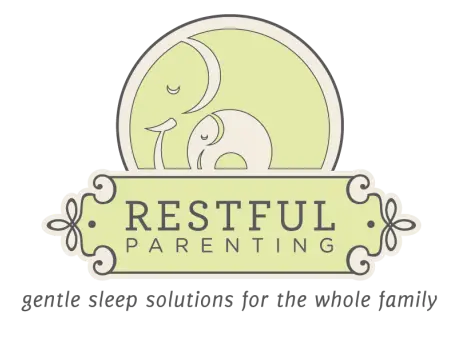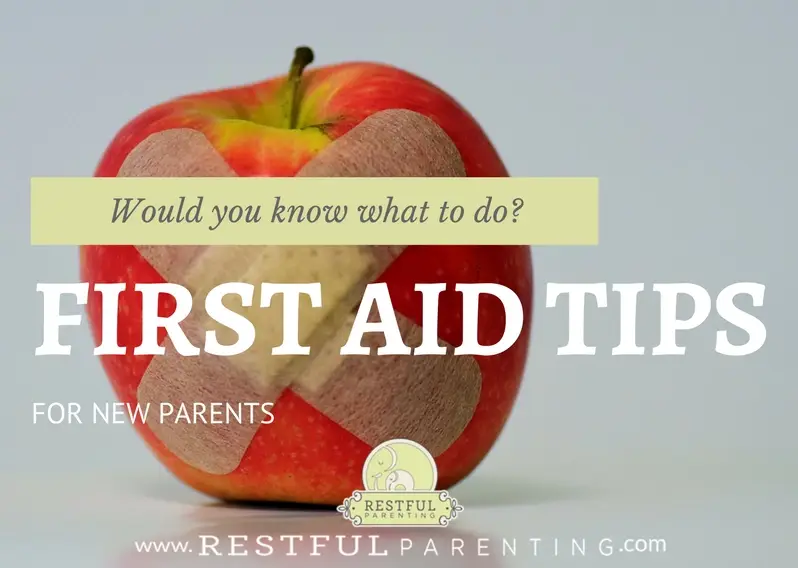Much of a new parent’s focus when preparing for a new baby is often setting up the nursery, buying the right baby gear and car seat and learning about birth and baby care. You never want to think about our baby being hurt or in distress. To be fully prepared, take the time to consider whether or not you are equipped with the proper knowledge to deal with your infant in an emergency. There are sure to be bumps and bruises in their childhood, so to help you out we’ve got some First Aid tips for new parents from our friend Jennifer Sybrandy, a registered nurse, Red Cross Instructor and owner of National Capital First Aid located in Ottawa, Ontario. Jennifer created a non-certification 2 hour class for parents, caregivers and grandparents to learn all they need to know to keep their children safe.
In the video demonstration below we had a discussion with Jennifer about how to deal with an infant choking:
Here is a summary of what was covered in the First Aid video about infant choking:
Your infant or child may only be mildly choking or coughing, so stay calm and assess the situation.
How to Handle Your Infant's Mild Choking/Coughing:
- Stay Calm
- Lean them forward, hold their head and let them cough
- Don’t lift their arms
- Don’t tap their back- great for burping, but not for a choking child as you may cause any minor obstruction to get lodged in their throat
How to Handle Severe Choking in Your Infant:
What is severe choking? It is a complete obstruction of airway. The signs of severe choking are: flailing/panic, face turns blue/purple, bulging eyes, no noise from their mouth, no crying, no screaming, however there may be a high pitched noise.
Intervention is required! Have someone call 911! If you are by yourself get right to the First Aid or you can use your cell phone on speaker phone while you start first aid.
The Steps for First Aid for Infant Choking:
- Sit down/or get on your knees on the floor
- Pick them up and turn them away from you
- Hold their cheeks
- ‘Sandwich’ your baby onto your knee with their face on your knee
- With heel of hand apply 5 hard back blows between the shoulder blades (a straight down motion) (see the video to see this motion in action)
- If the object comes out, you do not need to hit them again; take them to the doctor to be checked out
- If the object does not come out, and child is still conscious, ‘sandwich’ them again and flip them to the other knee
- Place two fingers below the nipple line (see the video)
- ‘Squish your baby’ in this spot (push half way down) 5 times
- If that does not work, repeat from step 2 until baby is breathing or unconscious.
How do you know your child is unconscious? They are no longer flailing, etc. Preform 2 minutes of unconscious first aid before calling 911 if you are alone and can’t easily get to the phone. (This technique is not shown in this video- check out the First Aid classes to learn more)
Common Choking Hazards for Infants:
- Phlegm
- Food: hot dogs & grapes (cut into quarters), sharp edged crackers and chips
- Any small toys or pieces, including money, milk/bread bag clips, plastic milk bag snippets
Tips to Avoid Choking:
- Making sure toddlers are sitting while eating
- Keep small items and purses out of reach, keep older children’s toys in a separate area if possible- use a baby gate to keep an older siblings room out of bounds or provide an area on a table for Lego, crafts and puzzle play out of reach of little fingers. Trays with edges are a great way to corral small pieces for games, Lego and small craft bits and clean up if the table does double duty for dinner.
We asked Jennifer if she had other tips to help families with some basic first aid over the summer months:
The best way to clean minor cuts and scrapes?
Ask almost any grandparent out there including your mother and she will tell you that the best way to clean minor cuts and scrapes is with alcohol and peroxide. Not anymore! The best way to clean them is with soap and water. Although alcohol and peroxide do disinfect, they can also kill the healthy skin cells around the scrape, which delays healing.
How do you know if a wound needs stitches?
- The edges of the skin do not fall together.
- The wound is more than 1 inch long.
- The wound is near joints on the hands or feet.
- The wound is on the face.
We would like to thank Jennifer for sharing her First Aid tips with us! We highly recommend her First Aid for Parents course and if you consider her class, get the whole family involved! Anyone who will be watching your child should know basic First Aid, especially how to deal with a choking infant.
“We have noticed many parents and grandparents attending our two day class only to access the information they needed for their little ones. We know that many parents do not have two days to spend in class, especially with the time constraints of being a parent. Out of this need we have created First Aid for Parents! This is a one-of-a-kind comprehensive 2+hour class that offers EASY TO UNDERSTAND instructions on how to help a newborn or child in life’s scary situations. It focuses on the information parents, grandparents or anyone who looks after children should learn in order to help them feel more prepared and to keep their children safe.”
Find a class in your area that focuses on the information that relates to infants and children will give you the confidence in your skills to know what to do in all types of situations! These courses follow the latest guidelines in First Aid and CPR and are taught by a Red Cross instructor with an extensive medical background. If your town or city does not offer the Parent First Aid and CPR class, we do encourage you to take the full certification program.
These are some of the very important topics the First Aid for Parents class offers:
- Patient Assessment
- When to call 911
- Choking/CPR Breathing
- Emergencies
- Severe Allergic Reactions
- Wounds – Cuts/scrapes
- Bruising
- Nose Bleeds
- Knocked out teeth
- Eye injuries
- Ear Injuries
- Burns
- Poisonings
For more helpful tips on how to prevent injuries and how to care for your little ones in an emergency, please contact National Capital First Aid or your local Red Cross provider to book a first aid course.
Jennifer is a registered nurse with 13 of years of experience in both acute and chronic care. She has worked in a variety of fields including Oncology, Hematology, Bone Marrow Transplant and Dialysis. She is the proud mother to 7 year old identical twins and she is a Red Cross instructor. From a young age, Jennifer has dreamed of helping people learn the skills needed to save lives in a crisis situation. Her passion for safety, education and teaching has led her to create National Capital First Aid. Jennifer is pleased to be able to offer high quality training.



